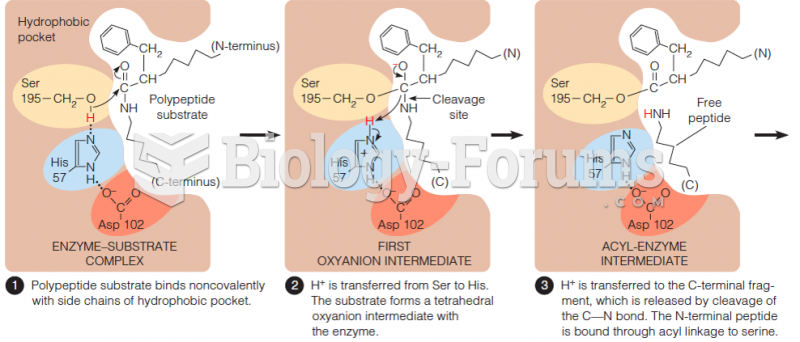|
|
|
Vaccines prevent between 2.5 and 4 million deaths every year.
Cancer has been around as long as humankind, but only in the second half of the twentieth century did the number of cancer cases explode.
The average human gut is home to perhaps 500 to 1,000 different species of bacteria.
As many as 28% of hospitalized patients requiring mechanical ventilators to help them breathe (for more than 48 hours) will develop ventilator-associated pneumonia. Current therapy involves intravenous antibiotics, but new antibiotics that can be inhaled (and more directly treat the infection) are being developed.
Children of people with alcoholism are more inclined to drink alcohol or use hard drugs. In fact, they are 400 times more likely to use hard drugs than those who do not have a family history of alcohol addiction.







